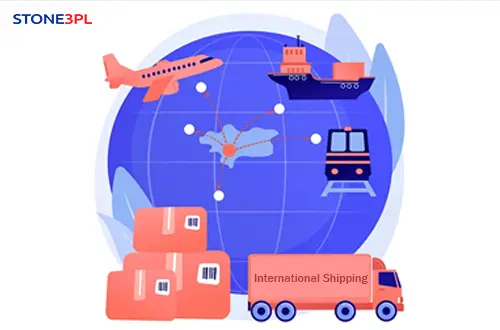Detailed Explanation of Common Terms in the International Shipping Process
During the international shipping process, whether you are an enterprise or an e-commerce seller, you may encounter some professional terms and terms, which are crucial to understanding the entire shipping process. The following are some popular and confusing terms and their professional explanations. For enterprises or e-commerce sellers, being familiar with and mastering the key links can help you better understand international shipping.

Explanation of common terms in international shipping
CY Cut-off / CY Closing
It refers to the closing time of container collection at the terminal. Before this time, loaded containers can enter the terminal, but they are not allowed to enter after that.
SI Cut-off
It refers to the time when the shipping company last changed the contents of the bill of lading, which is also the deadline for supplementing the bill of lading. After this point in time, the bill of lading information can usually no longer be changed for free.
Port of Loading and Port of Discharge
Port of Loading is the loading port, which refers to the port where goods are loaded onto the ship; Port of Discharge is the unloading port, which refers to the port where the goods are unloaded. These two ports are very important nodes in the maritime transportation process, determining the transportation path and cost of goods.
Customs Clearance
It refers to the procedure in which the consignee and consignor of imported and exported goods or their agent declares goods information to the customs so that the goods can be allowed to enter and exit the customs territory.
Declaration
It is a specific action, which means that the import and export consignee or its agent declares specific cargo information to the customs, including export and import.
FCL - Full Container Load
It refers to the entire container being used to load one cargo owner's goods, as opposed to LCL - Less than Container Load.
FOB
It is a term commonly used in international trade, meaning "free on board". It means that the seller delivers the goods to the ship designated by the buyer at the designated port of shipment and goes through export customs clearance procedures, that is, the delivery is completed. All risks and expenses shall be borne by the buyer from the time the goods are shipped.
ETA - Estimated Time of Arrival
It refers to the estimated time of arrival of the ship at the port. This time is estimated and may change due to weather, navigation route and other factors.
Estimated Time of Departure (ETD)
It refers to the time when the ship is expected to leave the port. This time is also an estimate and may actually be adjusted.
Demurrage and Detention
Demurrage refers to the fees incurred because the ship stays in the port for longer than the free period, usually calculated on a daily basis; Detention refers to the fees incurred because the container stays at the terminal or yard longer than the free period. These two costs are additional costs that may be incurred during ocean shipping and require special attention.
Rolled Cargo / Cargo Rollover
This refers to cargo that is rescheduled onto a later shipment due to various reasons such as capacity constraints, delays in customs clearance, or operational issues. When a container or shipment is unable to be loaded onto its scheduled voyage, it may be rolled over to a subsequent sailing.
Bill of Lading (B/L)
It is a receipt for the goods issued by the carrier or its agent. It is also a certificate of ownership of the goods and a proof of the contract of carriage between the shipper and the carrier. The bill of lading plays a very important role in international trade and is a key document between buyers and sellers, carriers, banks and other parties.
By understanding these professional terms, enterprises or e-commerce sellers can more clearly grasp the process of international shipping, ensure smooth operations and customer satisfaction, and thus manage their supply chain and logistics activities more effectively. In actual operation, if you encounter other doubts or problems, it is recommended to consult a professional international freight forwarder or logistics company, such as Stone3PL, to obtain more detailed and accurate answers.
